Life
Sign up for our newsletter
We summarize the week's scientific breakthroughs every Thursday.
-
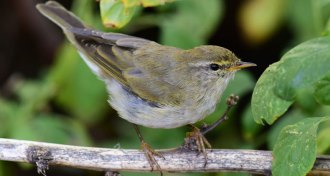 Animals
AnimalsWhen bird populations shrink, females fly away
In small and shrinking populations of willow warblers, males outnumber females. That’s because girls choose to join bigger groups, a new study finds.
-
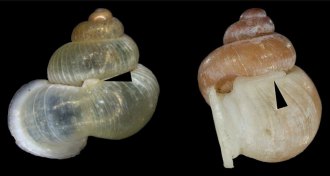 Animals
AnimalsHow snails breathe through snorkels on land
Shells with a tube counterintuitively sealed at the end have hidden ways to let Asian snails snorkel while sealed in their shells.
By Susan Milius -
 Animals
AnimalsHow snails breathe through snorkels on land
Shells with a tube counterintuitively sealed at the end have hidden ways to let Asian snails snorkel while sealed in their shells.
By Susan Milius -
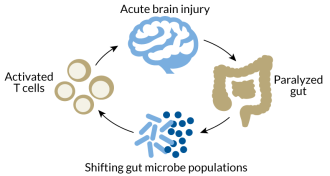 Neuroscience
NeurosciencePost-stroke shifts in gut bacteria could cause additional brain injury
The gut’s microbial population influences how mice fare after a stroke, suggesting that poop pills might one day prove therapeutic following brain injury.
-
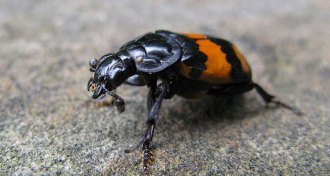 Animals
AnimalsBeetles that battle make better moms than ones that never fight
Female burying beetles that have to fight before reproducing spend more time caring for offspring than beetles with no fighting experience, a new study finds.
-
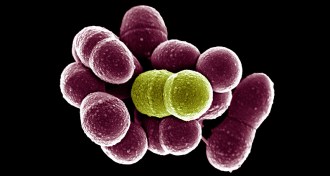 Life
LifeWhen mouth microbes pal up, infection ensues
A common and usually harmless species of mouth bacteria can help harmful bacteria become more powerful by providing oxygen.
-
 Health & Medicine
Health & Medicine‘Cracking the Aging Code’ tackles aging from evolutionary perspective
In 'Cracking the Aging Code', theoretical biologist Josh Mitteldorf and writer Dorion Sagan take a different approach to the science of growing old.
-
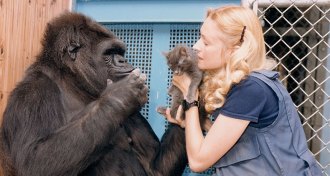 Animals
AnimalsDocumentary looks for meaning in Koko the gorilla’s life
'Koko — The Gorilla Who Talks' documents the nearly 45-year relationship between researcher Penny Patterson and Koko, the subject of an ape sign language project.
By Erin Wayman -
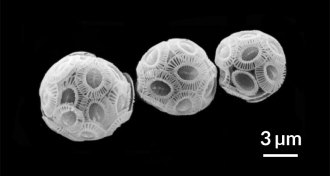 Climate
ClimatePhytoplankton’s response to climate change has its ups and downs
In a four-year experiment, the shell-building activities of a phytoplankton species underwent surprising ups and downs.
-
 Life
LifeMini ‘wind farm’ could capture energy from microbes in motion
Bacteria could spontaneously organize and rotate turbines, computer simulations show.
-
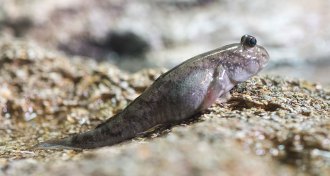 Life
LifeHightailing it out of the water, mudskipper style
A robot and a land-walking fish show how a tail might have made a huge difference for early vertebrates conquering the slippery slopes of terrestrial life.
By Susan Milius -
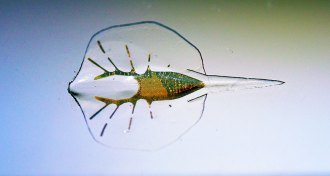 Tech
TechLight-activated heart cells help guide robotic stingray
Layers of silicone, gold and genetically engineered rat heart cells make up the body of a new stingray robot that can swim in response to light.
By Meghan Rosen